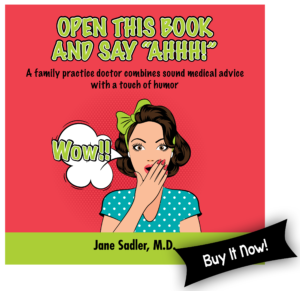

I am sleeping standing up. The dog took up most of my feet space and my husband inched over to the rest of the “me” space. Not that I mind a good snuggle…but can a girl get some sleep around here? It takes me a while, but then as soon as my sleep-deprived body awakens, Become more clear in my morning thoughts and I remember…I was supposed to blog about Better Sleep Month! Now that it is May 31st, the month is almost over. But not quite enough over to review the incredible importance of healthy sleep.
According to Dr. Larry Altshuler, director of Sleep Medicine at Cancer Treatment Centers of America, I am not alone in suffering sleep deprivation. Approximately 1/3 of Americans have chronic insomnia and about 74% of people will experience sleep problems intermittently in their lifetime.
A common sleep disorder, sleep apnea is a condition where you may take several pauses or shallow breaths while you sleep. Approximately 90% of people with sleep apnea do not know they have problems with getting enough night time oxygen and therefore do not reach healthy sleep levels. People with sleep apnea have a 5X increased risk of cancer-related deaths!
If you or your partner are concerned about the quality of your sleep, then a sleep study is a good idea. For mild sleep apnea, an oral device may suffice; however, specific oropharyngeal exercises (taught by a licensed speech therapist) may improve sleep apnea by up to 50%.
Good sleep is NOT over-rated! Sleep deprivation whether due to decreased sleep hours or sleep quality (i.e. apnea) causes decreased alertness, creativity, and overall performance according to Dr. Altshuler. Adults are not the only ones who suffer sleep disorders. Children with poor sleep habits are crankier and less adaptive to their environments; and, along with adults, are more likely to experience attention deficit. For most adults seven to nine hours (for children) a night is enough sleep.
Quality of sleep may be disrupted by stress and blue-light (electronics) exposure close to bed time. Dr. Altshuler recommends not to use our electronic tablets up to one hour prior to sleep. However, he does agree that the purple or red filters can help negate some of the blue light mal-effects on our sleep (look for these specialized programs available on the App Store).
Conquering poor sleep with a cat nap can be a good idea. NASA scientists found that a quick nap can increase alertness by 100% and improve performance by up to 34%. A 10-20minute power nap is most effective explains Dr. Altshuler. After approximately 30 minutes, people may experience sleep inertia; a sense of grogginess and difficulty overcoming their sleepy state.
Studying in Spain, my daughter is learning all about the siesta. Here, they take nap time seriously but unfortunately they also stay up very late into the evening and therefore do not exude the ultimate sleep health. NPR reports that the Spanish have some of the highest incidence of work-related accidents in the world and (for many reasons) the siesta may be going the way of the dinosaur.
Not feeling rested in the morning? Turn off electronics, go to bed earlier, consider a sleep study if needed. Still feeling tired? Sleep on it: A short nap could do all of us a world of good!